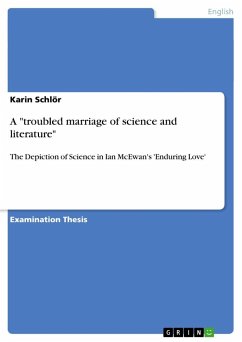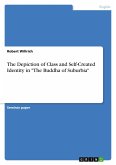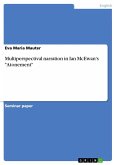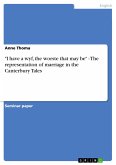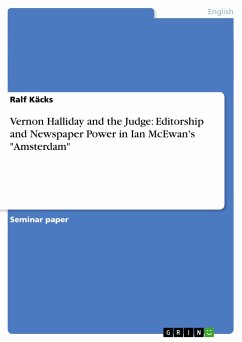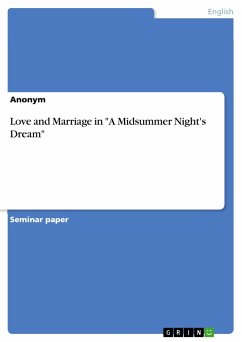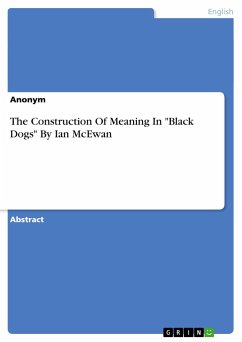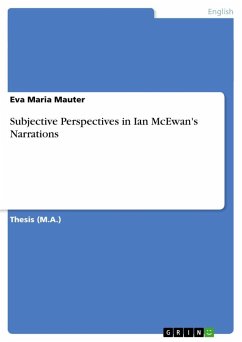Examination Thesis from the year 2013 in the subject English Language and Literature Studies - Literature, grade: 1,0, University of Würzburg, course: Englische Literaturwissenschaft, language: English, abstract: "There was an awful rainbow once in heaven:/ We know her woof, her texture; she is given/ In the dull catalogue of common things./ Philosophy will clip an Angel's wings,/ Conquer all mysteries by rule and line,/ Empty the haunted air, and gnomed mine -/ Unweave a rainbow" (Keats 320f). In December 1917, Keats attended Benjamin Haydon's 'immortal dinner' during which Charles Lamb accused Haydon of including Newton's head in his painting "Christ's Entry in Jerusalem" (cf. Dawkins 38f). This painting was, according to Lamb, an affront since Isaac Newton "had destroyed all the poetry of the rainbow by reducing it to the prismatic colours" (Dawkins 39). Keats agreed with Lamb that a man like Newton would "reduc[e] life to physical organization" (Gigante 442) and therefore bereave the world of its wonders. In 1919, Keats began writing Lamia in which he took up the subject of the difficult relationship between science and literature. The initial quotation promotes the assumption that in Lamia, science is seen as something that strips poetry (and the arts in general) of its "beauty and mystery" (Abrams 307). By "unweav[ing] the rainbow" (Keats/Cook 321) Sir Isaac Newton had presumably destroyed the mysterious nature of the rainbow by means of rationalism as one then knows about its "woof, [its] texture" (Keats 320). However, one can find ambiguous details in Lamia that put Keats' position in question. Under Apollonius' eyes (Apollonius stands for reason and the urge to define everything (Sandy 53)) Lamia's beauty vanishes and she becomes a serpent again. It could be argued that Apollonius saved Lycius (who is seen as a dreamer and a fantasist) from the sinful and evil snake, rather than depriving him of his lover. Although it might at first seem obvious that Keats is clearly emphatically siding against the scientific position, against reason, this view turns out to be reductive (cf. Midgley 55). Hence, even in Keats' poetry, which primarily demonizes science and the scientific progress, hints can be found that science is not that devilish after all. The hypothesis that Keats' view on science was not as exclusively negative as most commonly assumed is further supported by the fact that Keats had studied at Guy's Hospital and was licensed to work as an apothecary (Keats/Cook xxxi). In himself, Keats internalises the difficult relationship of science and literature.[...]
Hinweis: Dieser Artikel kann nur an eine deutsche Lieferadresse ausgeliefert werden.
Hinweis: Dieser Artikel kann nur an eine deutsche Lieferadresse ausgeliefert werden.

